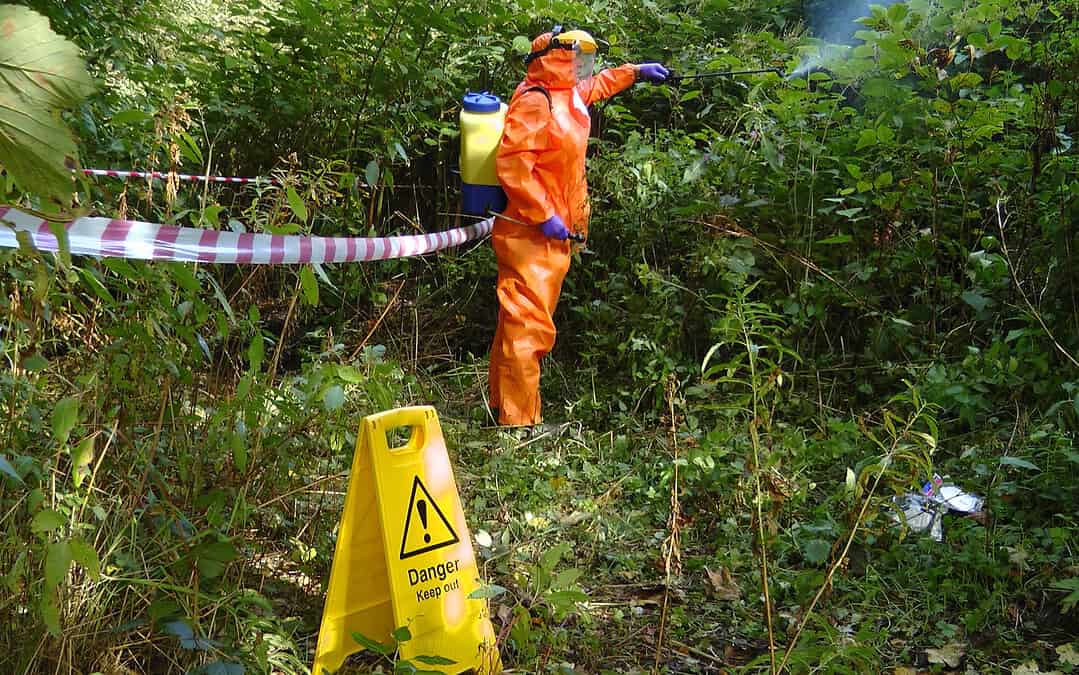When is the Best Time of Year to Treat Japanese Knotweed in the UK
Knowing the right time to treat Japanese Knotweed can be crucial for successful eradication. Read on to learn when is the best time of year to treat Japanese Knotweed in the UK and how to effectively control this invasive plant. When is the Best Time of Year to Treat Japanese Knotweed in the UK?
Japanese Knotweed is a highly invasive plant species that can cause significant damage to properties, gardens, and natural habitats. It is known for its fast growth and extensive root system, which can cause structural damage to buildings, walls, and other structures. That is why it’s essential to treat this plant as soon as it’s identified. However, treating Japanese Knotweed can be challenging, and timing is critical for successful eradication.
When is the Best Time of Year to Treat Japanese Knotweed in the UK?
The best time to treat Japanese Knotweed in the UK is during its active growing season, which typically runs from late April to September. During this period, the plant is actively growing, and its root system is more susceptible to herbicide treatments. However, the timing within this period can also affect the success of treatment. Here are some key considerations:
Spring – Early Summer (May to June):
This period is considered the best time to start treating Japanese Knotweed as it’s when the plant starts to grow and spread. During this time, the plant is taking up nutrients, and herbicide treatments can be more effective. Treating the plant during this period also helps to prevent its growth and spread during the summer months.
Summer (July to September):
As the summer months approach, Japanese Knotweed can become more challenging to control as it’s more established and resistant to herbicide treatments. Therefore, it’s essential to start treating the plant as early as possible during this period. Waiting too long can result in a more extensive root system, which can be harder to eradicate.
Late Autumn to Winter (October to March):
Japanese Knotweed becomes dormant during the winter months, making it less susceptible to herbicide treatments. Therefore, it’s not recommended to treat the plant during this period as it’s less likely to be successful. However, it’s still possible to remove the plant’s above-ground foliage during this period, which can help to prevent further spread.
Effective Methods for Controlling Japanese Knotweed:
There are various methods for controlling Japanese Knotweed, including chemical treatments, mechanical methods, and biological control. Here are some effective methods:
Chemical Treatment:
Chemical treatments involve the use of herbicides to kill the plant. This method can be very effective, but it’s important to use the right herbicide and apply it correctly. It’s also essential to time the treatment correctly, as discussed above.
Mechanical Methods:
Mechanical methods involve physically removing the plant, such as digging it up or using excavation machinery. This method can be effective but can also be challenging, especially for larger plants. It’s also important to ensure that all plant material is removed and disposed of correctly to prevent further spread. The plant is usually spread due to human error, bad house keeping, and procedures not being followed.
Biological Control:
Biological control involves the use of natural enemies, such as insects, to control the plant. This method is still in the experimental phase in the UK and is not widely used. However, it’s an environmentally friendly method that could provide a long-term solution.
FAQs:
Q. Can Japanese Knotweed be eradicated completely?
A. Yes, it is possible to eradicate Japanese Knotweed completely, but it can be challenging and time-consuming.
Q. What happens if I don’t treat Japanese Knotweed?
A. If left untreated, Japanese Knotweed can cause significant damage to properties and natural habitats, which can result in expensive repairs and a decrease in property value. Additionally, the plant can also spread to neighbouring properties and public land, leading to legal and financial implications.
Q. Can I treat Japanese Knotweed myself?
A. While it’s possible to treat Japanese Knotweed yourself, it’s recommended to seek professional help. Professional treatment will ensure the use of appropriate herbicides, correct application, and safe disposal of plant material. Additionally, professionals can also provide long-term management plans to prevent future spread.
Treating Japanese Knotweed is crucial for preventing damage to properties and natural habitats.
When is the Best Time of Year to Treat Japanese Knotweed in the UK? Timing is a critical factor in the success of treatment, and the best time to treat Japanese Knotweed in the UK is during its active growing season, which runs from late April to September. Chemical treatments, mechanical methods, and biological control are effective methods for controlling the plant, but it’s recommended to seek professional help for safe and efficient treatment. Remember to act quickly when identifying Japanese Knotweed, as early treatment can save time, and money, and prevent further spread.
